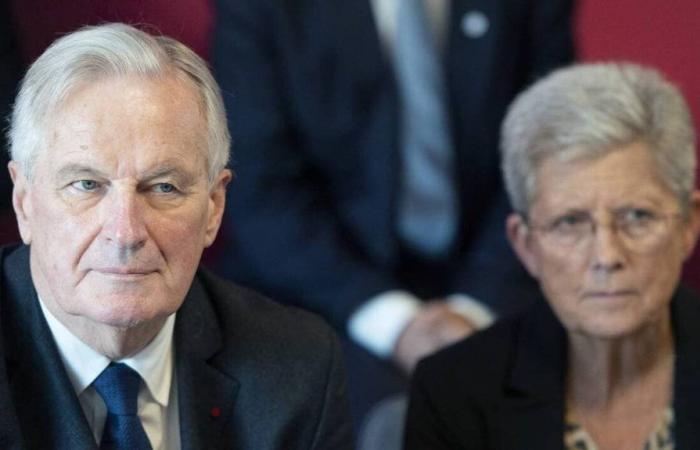Parliament will begin examining the 2025 budget. On the menu, tax increases and public job cuts. Here’s what we know.
Read also: CARDS. Budget 2025: what could the State take from your city, your department, your region?
1. Why should we care about the budget, especially this year?
First, because it is the key moment in democratic life. It defines public expenditure for the coming year (those of the State, Social Security and local authorities) and revenue (VAT, income tax, contributions, etc.). Without a budget, civil servants would no longer be paid and public services would come to a standstill. The Assembly must therefore adopt a budget before the end of the year. This year, we are close to mission impossible. The government, which presented the budget to the Council of Ministers on Thursday, is hanging by a thread. Its destiny is in the hands of the RN, which can press the censorship button at any time.
2. In the meantime, what does this budget say?
The 2025 vintage includes a plan for “austerity” – says the left, but the government denies it – and tax increases, on a scale rarely seen. Because, this year, the Ministry of the Economy has once again miscalculated tax revenues and expenditures. So much so that without corrective measures, the public deficit (the difference between revenue and expenditure) would have reached 210 billion (i.e. 7% of the wealth produced in a year), almost the same level as during Covid. To reduce the deficit to 5% (around 150 billion), we must find “sixty billion”, calculates the government.
First, by saving forty billion. For this, retirees will be called upon to contribute. The increase in their basic pension will take place in July 2025, and not in January 2025. “This shift will allow a saving of four billion”, indicates Bercy. Public employment will also suffer. The government plans to reduce the number of agents by 2,200 positions. The State also expects a cost-saving effort “five billion” local communities.
4. And the other 20 billion?
These are tax increases. Let’s first look at the one that concerns the 65,000 wealthiest households, those whose income exceeds €250,000 for a single person and €500,000 for a couple. “If the income tax is less than 20% of household income, the household will then have to pay an additional contribution in order to reach 20%,” explains Bercy. This new tax, introduced for three years, must bring in “two billion in 2025”.
But the middle and working classes will not escape tax increases either. The main tax on electricity will skyrocket. To understand, we have to go back a little. In 2022, world prices had exploded due to the war in Ukraine. To protect users, the State had reduced the tax from €0.032 per kWh to almost zero. In 2024, the State increased it to €0.021 per kWh. He does not now rule out increasing it to €0.05 per kWh, in February 2025. In other words, it will more than double. As world prices are falling, the rise will be painless. It will even translate “by a reduction in annual bills of €100”, indicates the Ministry of the Economy. But if one day prices start to rise again, the bill will be heavy.
The government also intends to transfer new charges from Social Security to supplementary insurance, for an amount of“n billion”. Enough to further increase mutual funds.
5. What about businesses?
An exceptional tax will be introduced for the 400 largest companies “The contribution corresponds to 20.6% of the corporate tax, due for 2024, for companies, whose turnover is between 1 and 3 billion euros, indicates Bercy. And 41.2% for those which reach at least three billion turnover. » The government expects a return of eight billion in 2025. In addition, companies which buy back their own shares to cancel them will be subject to a tax. The measure should report “two hundred million per year”. Also note the introduction of a tax on maritime transport, which should bring in “500 million in 2025.” SMEs will not be spared either. The State intends to review contribution reductions around the minimum wage. He is waiting for it “an economy of four billion”.
The government also wants to reduce the coverage of daily Social Security allowances. The ceiling taken into account to calculate them would increase from “1.8 to 1.4 minimum wage”. Enough to increase the burden for employers. In short, no one will escape this effort, at the height of a “considerable and unprecedented deficit slippage”, according to Pierre Moscovici, the president of the High Council of Public Finances.
6. Good news?
Yes, just one. The income tax scale will be increased like inflation, by 2.1%. This will allow certain taxpayers, whose income does not increase, to pay a little less tax.






